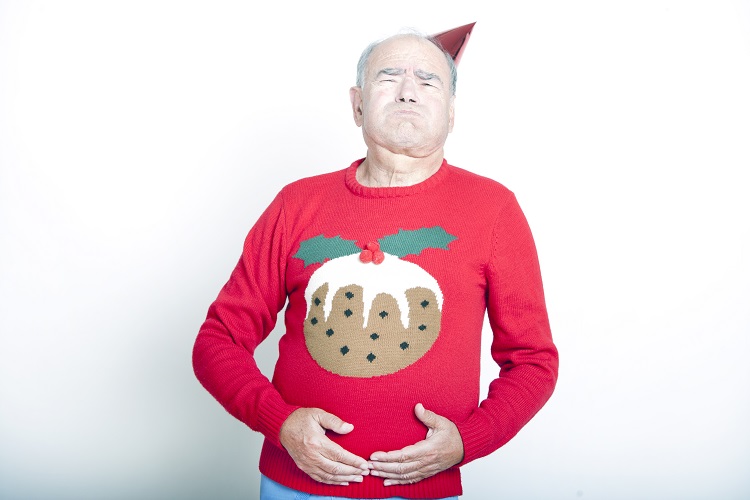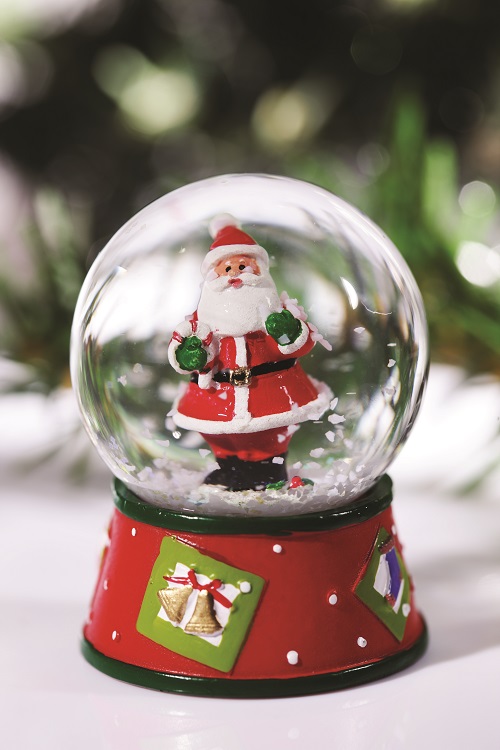Christmas is a time for giving and sharing, but as each year goes past, I am more aware of the waste that comes of this season.
Food waste, packaging waste, unwanted or un-needed gift waste, clothes waste and also time waste. No one likes waste, especially money waste, yet we all seem to get sucked into the wasteful trend. What if we put a stop to this practice, refocused on the real meaning of the festive season, and experienced a Christmas without so much waste?

What does Christmas mean to you?
For this, I will ask you to set aside the religious meaning of Christmas. The reason I ask this, is that so many, all over the world, now take time to enjoy the ‘festive season’, and they may not be Christians, celebrating the religious festival. Let’s look at Christmas as a festival of peace and goodwill to all – not just limited to those who are celebrating the birth of Christ.
So, when you think of Christmas, what comes to your mind?
Presents. Food. Treats. Parties. Meals. Outfits. Christmas jumpers. Pantomimes. Trees and lights. Visits to Santa. The list goes on!
It’s a fun time of the year.
It can also be a very stressful one!
What do you buy so-and-so as a gift? How much food is enough – will it all go round? Christmas meals out with friends – how can you fit them in to your already hectic diary, and how much is it costing you? How many outfits will you need? Are you happy to wear the same one twice, or does it have to be a different one for each occasion?
These are only a few questions that come to mind, but just thinking them, I am sure, like me, you can feel a little stress coming on and your muscles beginning to tighten a little!

More, more, more
Let’s face it. No one wants this stress. For some reason, however, we are all expected to go through it every single year.
The minute October is over, and sometimes before, the shops have their Christmas stock on their shelves and the TV is full of Christmas adverts and stressful announcements from furniture manufacturers yelling at you to replace your sofa now, or you won’t have a perfect display home in time for Christmas.
The problem is, we are so readily influenced by these advertising cues and triggers, that we blindly follow them year on year, no matter the cost.
It’s not just the retail industry that has us doubting whether we have bought enough food or whether we are pretty enough for the party; our family, friends and colleagues seem in on it too.
‘What are you wearing to the party?’, ‘Do you think one turkey will be enough?’, ‘I’m getting a real tree this year and buying some new garden lights’, ‘How much are you spending on ‘Secret Santa’?’, etc.
This is the sad reality of a modern Christmas as we know it.
It’s not just stress that it causes, but waste. A terrible amount of waste.

It’s time to regain control
With environmental waste, personal financial debts and waistlines spiralling out of control, is it not time we try to actively stop this current wasteful trend and regain our perspective and control over the festive season once more?
The new ‘traditions’, or behaviours, that we have enlisted are so far removed from the real spirit of the festival, and has almost turned to the opposite.
Every year we watch scenes of people fighting over discounted goods in stores. We purchase clothing that is manufactured in workshops that often have inhumane working conditions for their staff, who are also poorly recompensed. We buy cheap plastic, gimmicky novelties and toys, that have been shipped from overseas and have a huge carbon footprint and only contribute to the destruction of our planet. We overbuy food that either adds to our high cholesterol and high blood sugar, or is wasted, and meanwhile there are people homeless and starving in every country of the world.
Surely, it’s not just me that sees that something is no longer right with our annual celebration of Christmas?

Can You Help Stop Future Generations of Christmas Waste?
While I don’t want to put a dampener on anyone’s celebrations, I do think it is time that we all took a moment to stop and think about how wasteful our own traditions of Christmas have become.
The traditions, or behaviours, that we exhibit each year are naturally adopted by our children. These traditions are then passed on, as they start their own families and share what Christmas means to them. If we, as adults, can show our children that we can have a time of great fun and excitement without the waste and other consequences, then surely this is a stronger message to the next and future generations that will continue to flourish and have a more positive impact on our society, and on our world as a whole.
So, do you feel inspired to change something in your current Christmas traditions?
Are you ready to stop the Christmas Waste?
If so, here are just a few examples of where you can start.

1. Clothes
Only a few weeks ago, my friends and I were discussing our past Christmas parties. When I mentioned that, for the last 3 years, I have worn the same pair of trousers and the same pair of shoes to these parties, they were all quite taken aback. Each year we compliment each other on how lovely we all look, but never remember from one year to the next what we were all wearing! I just decided that I would wear a different top and change my accessories to match, and they had no idea I was wearing, fundamentally, the same outfit!
It just goes to show, that we really don’t need to be spending on outfits that we will only wear once.
Not only is it a waste of money, but a waste of resources.
Why not reuse and recycle your outfit?
Visit your local charity shops and purchase some new costume jewellery and accessories to change the look to your outfit.
Swap items with your friends to create a whole new outfit without having to buy anything new.
The event is about having fun, so why not have fun trying to be as creative as possible with coming up with an outfit that costs as little as possible with less impact on the environment, and your bank account?

2. Food
We are so wasteful when it comes to food. Each week we buy more food than we can eat, and end up binning so much of it, as we let it go to rot in our kitchens. During the festive season, we buy even more food, and this leads to even more waste.
This is food that we really don’t need.
How many times have you eaten so much on Christmas Day that you feel that you can’t eat another mouthful and the thought of food is just too much to bear?
The classic scene on Christmas afternoon, in many a home, is everyone asleep on the sofa as they nurse their full bellies!
Why do we do it? Why do we think that, just for those days, we need to eat double the amount and stock our cupboards full to bursting with an amount of food we cannot physically eat in the time that spans the festive week?
When you take a step back from it all, it seems totally crazy. We binge eat, and over buy in December, then in January we go on crazy diets and struggle with money until our wages arrive in the account at the end of the month.
Do these behaviours actually improve our enjoyment of Christmas, or are they just habits that we have settled into?
I suggest we do something crazy. I suggest that we just buy what we need, and maybe a few extra treats, and keep within our food budget.
Unless you live in a remote part of the world, there really is no need to stock-pile food! The shops are only closed for Christmas Day. That’s all. They are open all other days, so you don’t need to panic buy.
If you have overbought, then think about donating food to your local food bank or food kitchen for the homeless. If you have the urge to overbuy and can afford to, then buy and send it in their direction. These charities are always welcome for donations.
If you have food that’s at risk of going off, then try to cook it and prepare meals that you can freeze for the days ahead.
If the food has turned, so that it is no longer edible, compost what you can, and bring it back to nature that way, rather than through landfill sites.

3. Mindful Purchases
Think carefully before you purchase your gifts. Think of whether the person will use or need the item. Avoid purchasing gimmicks and ‘jokey’ gifts. These will only end up in landfill sites after the joke has been had. It’s a waste of money, resources and bad for the environment.
Ask the recipient what they would like, before you set out to buy.
If money is tight, then suggest within your family that you have a rule of only buying for the kids. As families grow, it can become incredibly expensive to buy a decent gift for everyone, so cut back and focus on the children. The chances are, the other adults in the family will agree and feel the same about it. Remember, again, to find out what the kids want before your go ahead and buy excess toys and games that will only end up unused in their cupboards.
Consider alternative types of gifts such as experience, cinema, restaurant, clothes or book vouchers. Why not book time to take them out to their favourite cafe, museum, activity centre, or sports game?
Try to shop locally and ethically. By doing so, you will help in ways such as lowering the carbon footprint, boosting your local economy and jobs, or supporting industries that are trying to reduce poverty and improve living standards in other parts of the world.

4. Gift Wrap and Packaging
It is a pretty sight to see beautifully wrapped, colourful presents under the tree. This comes with it’s own level of waste, however.
The majority of Christmas wrapping products are plastic and many cannot be recycled.
We still want to see lovely wrapped gifts, but we don’t want to see our world being choked up with all the waste that it causes each year.
Let’s start by reusing and recycling what we can. Metallic or plastic bows and ribbons can often be reused. Gift bags are also something that can usually be saved and reused again.
If you need to purchase new wrapping paper, find some that can be easily recycled.
When you are wrapping your presents, think of using natural string, rather than plastic backed sticky tape.
Wrapping your gift in canvas or pretty, reusable shopping bags, is also something to consider.

5. Money
Everything that has been mentioned above will also help reduce the amount of money that you waste. Being mindful with your purchases, recycling outfits and not over-buying food etc, will all help with your finances.
Decide on spending limits for gifts, events, outfits, food, and decorations – and stick to it.
Don’t be shy to tell others what you are doing. You might find that your family and friends feel exactly the same, and will follow your lead.
You must look after yourself. Don’t put yourself in debt because of others. It they can afford it, that’s great for them! If you can’t, then don’t be pressured to follow. It’s only you that you will hurt in the long term.

What Will You Do to Help Reduce Christmas Waste this Year?
As I summarise this article, I hope that it is understood that it is not meant to ruin anyone’s joy of the season, but to make us think a little more about the negative impact of some of our traditions and behaviours surrounding the festive season.
I hope that, by consciously making a few adjustments now, we can still have fun but with less of a negative impact on our planet’s future, and the future of those we love and wish to protect.
What actions will you take to celebrate a Christmas without the waste?
Originally published on Clarity Junction

